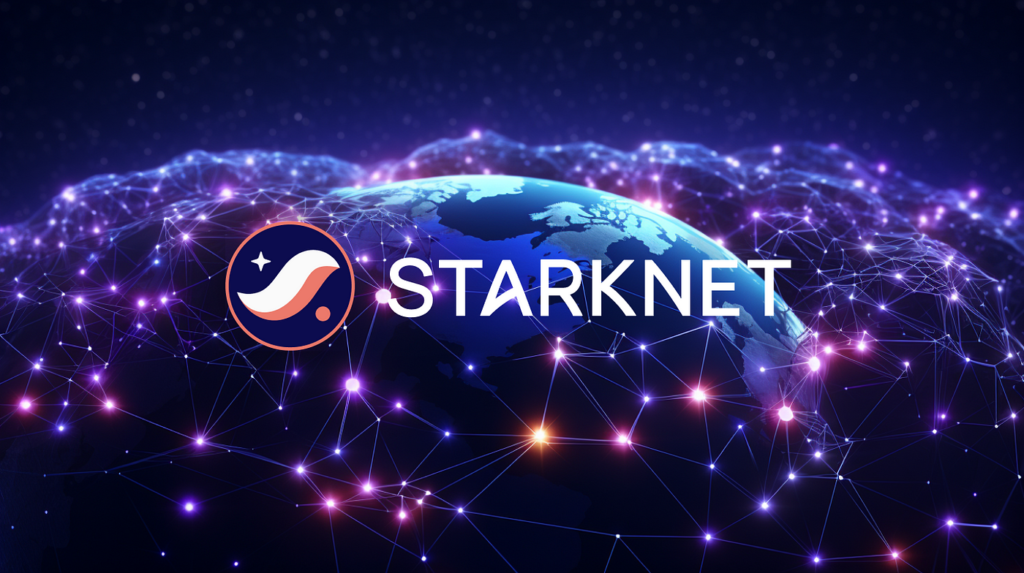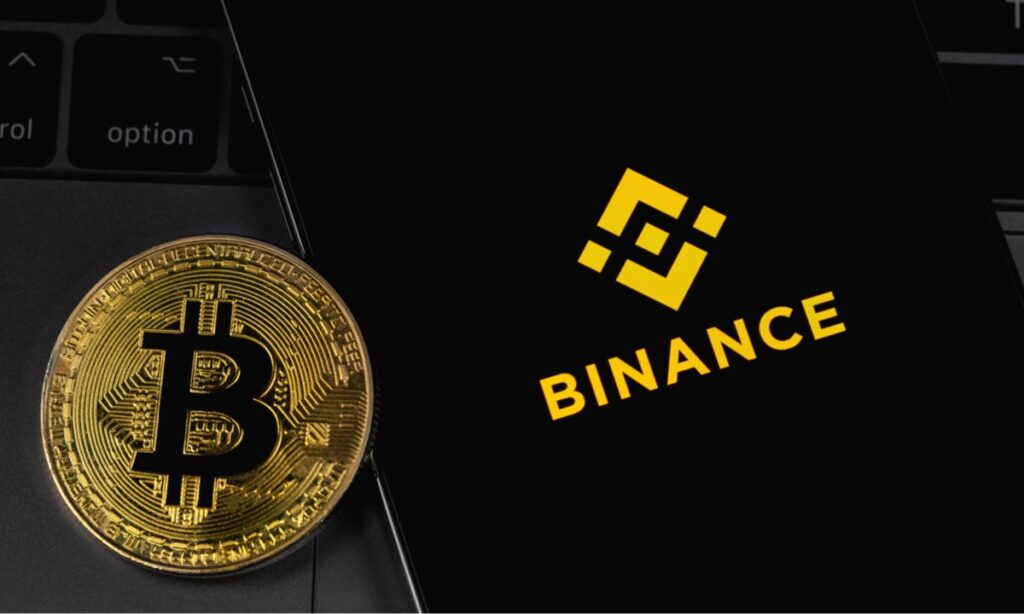Cboe Global Markets has formally requested approval from the United States Securities and Exchange Commission (SEC) for a rule modification that would enable the combination of exchange-traded funds (ETFs) and mutual funds.
In a report by Reuters on April 4, it was disclosed that Cboe submitted a 19b-4 form, seeking permission to introduce an ETF share class to existing mutual funds.
This move aims to establish a multi-share class fund structure, enabling issuers to merge and offer similar mutual funds and ETFs under one investment vehicle.
Todd Sohn, an ETF analyst at Strategas LLC, emphasized to Reuters that if the SEC greenlights Cboe’s proposal, “both the number of ETFs and ETF assets could soar.”
Distinguishing between mutual funds and ETFs, these investment vehicles operate differently, each with its own regulatory framework.
Mutual funds are typically traded at the end of the trading day at a price determined by the fund’s net asset value, computed post-market closure.
Conversely, ETFs trade on exchanges throughout the trading day at market prices akin to stocks, subject to fluctuations at any given moment.
Should the rule alteration be sanctioned, Bitcoin ETF shares might be integrated into a mutual fund’s portfolio, thereby providing exposure to the digital asset.
This prospective system is not without precedent. Vanguard Group has employed a patented investment strategy since 2001, facilitating a distinctive “share class” structure within their ETFs.
READ MORE: DogWifHood (WIFT) Begins Trading on MEXC – But Will it Flip DogWifHat (WIF)?
This approach allowed Vanguard to incorporate ETFs as a share class of their existing mutual funds, sharing the same underlying portfolio. Vanguard’s patent on this share class concept lapsed in May 2023.
According to Reuters, eight asset managers, including Dimensional Fund Advisors, Morgan Stanley, and Fidelity, have sought regulatory approval to replicate this model. T. Rowe Price and JPMorgan have also indicated interest in adopting a similar strategy.
Cboe’s application is subject to approval or rejection by the SEC within 240 days. Bloomberg ETF analyst Eric Balchunas observed that the filing provides issuers with an opportunity to prompt the SEC’s response to their applications.
Mordor Intelligence projects that the North American ETF market will surpass $8 trillion in 2024, with a compound annual growth rate of 14% expected to propel it to $15.52 trillion by 2029.
To submit a crypto press release (PR), send an email to sales@cryptointelligence.co.uk.
The United States Consumer Financial Protection Bureau (CFPB) has recently issued a warning through its report, “Banking in video games and virtual worlds,” about potential risks associated with the integration of cryptocurrencies in gaming.
The report, unveiled on April 4, scrutinizes the burgeoning trend of digital assets within online gaming ecosystems and virtual environments, underscoring the agency’s concern over scams and the limited consumer protections available.
The CFPB’s investigation into the gaming sector reveals an increasing fascination among developers to transform virtual items into tangible assets, bridging the gap between the digital and real worlds.
Although these practices are yet to become prevalent on leading gaming platforms like Roblox or Fortnite, there’s a notable uptick in the use of crypto assets within virtual domains.
The report particularly points out, “Notably, some of the largest virtual gaming world publishers have expressed growing interest in positioning their virtual items as crypto-assets that have the ability to be traded outside of the game’s economy.”
It acknowledges the capacity for crypto assets in virtual settings such as Decentraland and The Sandbox to be traded for real money across various cryptocurrency exchanges.
Alexander Grieve from Paradigm sees the CFPB’s report as a precursor to possible regulatory measures, indicating a broader federal interest in defining its stance within the cryptocurrency space.
The CFPB’s document brings to light the similarity between online gaming financial transactions and traditional banking, albeit without the safeguarding regulations typically provided by federal authorities.
The bureau has cataloged numerous complaints from consumers facing security breaches, including hacking and asset theft, criticizing the inadequate response from game developers to these incidents.
CFPB Director Rohit Chopra emphasized the significant shift towards virtual banking and payments within gaming, pointing out the conversion of substantial sums into digital currencies.
The bureau’s focus extends to introducing regulatory oversight for cryptocurrencies, as seen in its proposed rule aimed at defining the scope of its authority over digital payment applications and wallets.
This rule, which targets nonbank financial companies processing over five million transactions annually, seeks to impose banking-level regulations on these entities.
Despite its primary focus not being explicitly on cryptocurrencies, the rule has sparked debate over its potential implications for the digital currency sector, with some critics arguing it oversteps in its jurisdiction over cryptocurrencies.
To submit a crypto press release (PR), send an email to sales@cryptointelligence.co.uk.
The Ethereum layer-2 protocol Starknet faced a block reorganization issue, causing a transaction backlog and a four-hour outage in block production, as revealed by Starkscan, its block monitoring tool.
On April 4, a gap appeared between the creation of blocks 630028 and 630029, while Starknet’s status page showed no reported outages.
In response, Starknet issued a statement attributing the incident to a rounding error bug, clarifying that although block production continued normally, the reorganization led to a transaction backlog, hindering the network’s full capacity.
The statement explained that for a brief period, new transactions couldn’t be processed and were rejected, and some transactions were reverted due to parameter changes.
Despite attempts to verify details with Starknet, Cointelegraph received no additional information on whether block production ceased during the incident.
The last major outage recorded on Starknet’s status page was on March 13, during Ethereum’s Dencun upgrade, causing slow block creation.
READ MORE: How to Earn with Toncoin On its Popularity Peak?
Starknet’s disruption adds to a string of challenges faced by prominent blockchain networks.
Solana, for instance, encountered a significant outage in early February 2024, halting block progression on its mainnet for over five hours.
This was not an isolated incident, as Solana experienced multiple outages since January 2022, including a notable one on February 9, detailed in a postmortem report by Anza, a Solana-focused software development firm.
According to Austin Federa, head of strategy at the Solana Foundation, the recent outage was attributed to a bug in Solana’s Just-in-Time (JIT) compilation cache, which unexpectedly triggered an infinite loop due to an old instruction set.
Solana faced further issues in early April, with approximately 75% of transactions failing amid heightened activity related to memecoin speculation.
Analysts attribute these failures mainly to bot activities seeking arbitrage opportunities on the Solana network.
To submit a crypto press release (PR), send an email to sales@cryptointelligence.co.uk.
Blockchain investigator ZachXBT has recently voiced concerns over what he perceives as excessive and intrusive methods employed by the Criminal Investigation Unit (CIU) of the U.S. Internal Revenue Service (IRS) in their efforts to solicit his help with blockchain-related investigations.
ZachXBT, known for his expertise in tracing blockchain transactions, took to X on March 6 to share his experiences of being pursued by the IRS for his knowledge and skills.
Despite his general willingness to aid victims and law enforcement, ZachXBT feels that the IRS’s tactics have infringed upon his personal boundaries.
ZachXBT’s grievances include unannounced visits to former residences, unsolicited emails to personal accounts utilizing private information, and physical mail, despite his public availability through more conventional contact methods.
Among the evidence he provided was an email from an IRS special agent, who lauded ZachXBT for his “impressive work,” particularly his adeptness with blockchain tracing tools.
READ MORE: Terraform Labs Faces Allegations of False Claims as SEC Trial Nears Conclusion
The agent, acknowledging their own limitations in understanding blockchain, sought ZachXBT’s guidance on making significant contributions to the field.
However, ZachXBT has criticized the IRS’s approach as showing “blatant disregard for any professionalism,” a stance he took after declining to support investors of the Complex (SIMPLE) memecoin following its unexpected collapse on April 4.
He expressed a preference for aiding genuine victims over those who speculate on high-risk, unproven digital assets.
The IRS, meanwhile, continues to enhance its engagement with key figures and organizations in the blockchain tracing sector.
A notable partnership highlighted by the agency is with Chainalysis, a leading blockchain analytics company.
In May 2023, IRS-CI Chief Jim Lee emphasized the critical role of such collaborations, stating that the fight against cryptocurrency-related crime would be “impossible” without the advanced tools and infrastructure provided by these partnerships.
Lee also noted that, thanks to these efforts, the IRS-CI has confiscated an estimated $10 billion in cryptocurrency since it started probing a wide range of digital asset-related criminal activities, showcasing the significant impact and importance of these investigative endeavors.
To submit a crypto press release (PR), send an email to sales@cryptointelligence.co.uk.
Book of Epstein (BOE) was launched around an hour ago, and it is now trading on decentralized exchanges on the Solana network, such as Raydium.
A new Solana memecoin called Book of Epstein (BOE) is set to generate astronomical returns for early buyers in the next 24-48 hours, with it even attracting interest from the Shiba Inu (SHIB) and Dogecoin (DOGE) communities.
The memecoin currently has a market cap of around $82,000 according to DEX Screener data, with it trading around $0.000084.
It is projected to breach the $0.00012 mark within the next 24 hours, to deliver over 1,500% returns to early investors.
Book of Epstein was launched just one hour ago, and it is likely to attract strong inflows, as memecoin traders cash in some of their profits from successful SHIB and DOGE trades, and buy this new token.
This is because, due to its ultra-low market cap at the moment, BOE presents a lot more upside potential than large cap memecoins, such as PEPE, Doge and SHIB.
Furthermore, as the coin’s first listing on a centralized exchange is expected to be announced on Wednesday, the price of Book of Epstein could skyrocket much higher than $0.00012 and potentially target a market cap of over $10 million before the end of April.
Numerous other memecoins, such as DogWifHood, have achieved this feat within a couple of weeks of being launched, so the chances of Book of Epstein also achieving this are quite high, given the hype that is already building around this token.
If it reaches a $10 million market cap, early BOE investors would generate a return of more than 10,000%, so it’s not surprising to see many memecoin investors pouring money into this coin as early as possible.
To submit a crypto press release (PR), send an email to sales@cryptointelligence.co.uk.
In a recent development reported by Bloomberg on April 5, the FTX estate has notably sold a significant portion of its Solana (SOL) tokens, specifically over half, at a substantial 63% discount from their current market value.
This sale is pivotal as SOL tokens are considered the main assets of the now-defunct exchange.
The transaction attracted attention from several prominent players in the financial world, including asset managers and venture capitalists like Galaxy Trading and Pantera Capital, as shared by sources familiar with the situation.
FTX, which previously backed Solana as an early investor, disposed of 25 to 30 million SOL tokens that were locked and could not be traded until a set deadline, due to a four-year vesting schedule.
These tokens were sold at $64 each, culminating in approximately $1.9 billion for the creditors of FTX.
This sale occurred despite SOL’s trading price soaring to $176, as per CoinMarketCap, marking a notable 743% increase over a year, propelled by the broader crypto market’s recovery and a spike in memecoin popularity.
Galaxy Trading, under Mike Novogratz’s Galaxy Digital umbrella, successfully gathered about $620 million to acquire SOL tokens from FTX’s estate.
This investment entailed a 1% management fee and aimed at earning returns through staking, according to insider accounts. Galaxy Asset Management facilitated the asset exchange and sale process.
Additionally, Pantera Capital managed to raise $250 million for purchasing SOL tokens, and Neptune Digital Assets, a Canadian blockchain firm, bought 26,964 SOL tokens at $64 each on March 27.
READ MORE: Investors Rush to BabyCat Coin as It’s Poised to Rally 8,000%, Challenge Shiba Inu and Dogecoin
The decision to sell FTX assets at such a marked-down rate has led to criticism from the exchange’s creditors.
In a related event on March 28, Sam Bankman-Fried, the former CEO of FTX, was sentenced to 25 years in prison for fraud charges linked to the exchange’s collapse in November 2022.
Creditors during the sentencing voiced concerns over the liquidation practices of the exchange’s assets by its liquidators, accusing them of infringing upon the “property rights.”
Among the vocal critics was FTX creditor Sunil Kavuri, who highlighted the discrepancy in the sale price of assets, including a significant reduction in the value of Solana tokens.
Furthermore, a class action has been initiated against Sullivan & Cromwell, accusing the law firm of complicity in the fraud before it represented FTX in bankruptcy proceedings.
To submit a crypto press release (PR), send an email to sales@cryptointelligence.co.uk.
In a recent revelation by CoinGecko, the memecoin sector has distinguished itself as the most lucrative narrative within the crypto market this year.
A staggering average return of 1,312.6% was seen across leading memecoins by market cap.
New entrants like Book of Meme (BOME), Brett, and Cat in a Dogs World (MEW) broke into the top 10 by market value following their March launches.
Brett achieved an astonishing 7,727.6% return by Q3 2024’s end, outshining Dogwifhat (WIF) with its 2,721.2% growth, spurred by a Solana-based memecoin craze.
CoinGecko analyst Lim Yu Qian highlighted the exceptional performance of memecoins, stating, “Notably, the memecoin narrative was 4.6 times more profitable than the next best-performing crypto narrative of tokenized real-world assets (RWA), and 33.3 times more profitable than the layer 2 narratives with the lowest returns in Q1 this year.”
As it stands, memecoins boast a market cap of $60.93 billion, a notable 176.9% rise from the previous quarter and making up 2.32% of the total crypto market.
READ MORE: AI Pepe King (AIPEPE) Surges 240% in 24 Hours as SHIB and DOGE Investors Join its Ranks
This surge outpaces the capitalization of sectors like decentralized physical infrastructure networks ($29.98 billion), layer 2 solutions ($32.39 billion), and others, underscoring the memecoin market’s growth and investor appeal.
Google Trends data reflects a peak in “memecoins” searches, hitting a near five-year high in March, indicative of soaring global interest.
This uptick in popularity and increased transaction volumes points to a broadening investor base and vibrant community engagement around memecoins.
The sector’s success coincides with Bitcoin’s record-breaking rally, with its price surpassing $73,800 for the first time, ahead of a supply halving event.
This achievement has arguably fueled broader interest in cryptocurrencies, including memecoins, as investors look to capitalize on the burgeoning market.
To submit a crypto press release (PR), send an email to sales@cryptointelligence.co.uk.
In a strategic move to address its financial obligations, the insolvent cryptocurrency lending entity Genesis reportedly disposed of roughly 36 million shares in the Grayscale Bitcoin Trust (GBTC), aiming to bolster its Bitcoin holdings to facilitate debt settlements with its creditors.
A Bloomberg article recently highlighted this significant transaction, noting the liquidation of these shares on April 2, which at the time were valued at around $58.50 each.
This disposal came after a notable increase in share value, approximately 50% since Genesis sought approval from a bankruptcy court in the United States to sell the GBTC shares on February 2, when their price stood at $38.50.
The aggregate sales proceeds amounted to $2.1 billion, enabling Genesis to acquire 32,041 Bitcoin at a price point of $65,685 each on the same day.
The firm intends to utilize this Bitcoin cache in its ongoing efforts to repay its creditors.
At the time this information was disclosed, the acquired Bitcoin stash was valued at $2.18 billion.
In light of these developments, Coinbase, a leading cryptocurrency exchange, reassured the market that this substantial sell-off was unlikely to destabilize the broader crypto market.
“Our view is that much of these funds will likely remain within the crypto ecosystem, contributing to a neutral overall effect in the market,” Coinbase remarked.
READ MORE: Anthropic AI Unveils Game-Changing ‘Tool Use’ Beta for Claude, Empowering Real-Time Data Integration
They elaborated that the bankruptcy plan’s provisions permitted Genesis to either directly convert the GBTC shares into Bitcoin for creditors or sell the shares and distribute the proceeds in cash.
This move follows assertions from the Digital Currency Group (DCG), which contended that its subsidiary, Genesis, had proposed compensating its customers beyond what they were actually entitled to.
Cointelegraph, on February 6, reported DCG’s statement that Genesis’s proposed plan would result in lenders receiving “hundreds of millions of dollars more than the full amount of their petition date claims.”
Genesis’s strategic financial maneuvering comes after its Chapter 11 bankruptcy filing in January 2023, marking a critical phase in its efforts to stabilize its operations and fulfill its financial commitments to creditors.
To submit a crypto press release (PR), send an email to sales@cryptointelligence.co.uk.
In a recent surge that underscores the recovering dynamics of the cryptocurrency market, Binance, the world’s leading crypto exchange, experienced a record-breaking increase in its spot trading volume.
According to a report by CCData, a prominent cryptocurrency analytics firm, Binance’s spot trading volume escalated to a staggering $1.12 trillion in March, marking a 121% increase and reaching its zenith since May 2021.
This remarkable growth spanned over seven consecutive months, culminating in a significant uplift in March.
The same report by CCData, dated April 5, also revealed that Binance has not only seen a surge in spot trading but its market share has concurrently expanded by 1.04%, now commanding 44.1% of the market in March.
This ascendancy in the market is partially attributed to Binance’s resolution of a legal confrontation with the United States Department of Justice, which was settled with a hefty $4.3 billion.
Post-settlement, Binance’s derivatives trading volumes soared by 89.7% to $2.91 trillion, equaling the high-water mark set in May 2021.
CCData analysts pointed out that Binance achieved the most substantial growth in spot markets among all, bolstering its market dominance by an additional 2.3% compared to February.
It now accounts for 38.0% of the spot trading volumes on centralized exchanges (CEXs), marking the largest year-to-date gains.
READ MORE: Anthropic AI Unveils Game-Changing ‘Tool Use’ Beta for Claude, Empowering Real-Time Data Integration
Earlier in January, analytics firm Kaiko highlighted Binance’s burgeoning trading volume and market share, which spiked by 50% in the mere span of two months following its settlement.
Despite facing regulatory hurdles, Binance reported an addition of over 40 million users in 2023, a nearly 30% increase from the previous year, thanks to its “key services.”
The exchange’s uptick in user base and trading volumes is indicative of the enduring trust it enjoys within the crypto community.
The crypto market, in general, witnessed a significant upswing in March as the combined spot and derivatives trading volume on CEXs surged to a new all-time high of $9.12 trillion, driven by Bitcoin’s rally to new heights and speculative trading in anticipation of the Bitcoin supply halving and the success of spot Bitcoin ETFs.
This phenomenon not only reflects the bullish sentiment prevailing in the market but also underscores the critical role of centralized exchanges in the ecosystem, despite the setbacks faced by entities like FTX.
To submit a crypto press release (PR), send an email to sales@cryptointelligence.co.uk.
The new earning feature allows users to gain enhanced yields by combining natively yield-earning assets and market-making yields.
Decentralized finance protocol Swaap Labs announces the launch of its yield-generating platform, Swaap Earn, introducing earning opportunities to users on the platform. According to the team statement, the new feature aims to enhance DeFi yields and enable liquidity providers to “enjoy improved yields”. This allows LPs to maximize their earnings while mitigating risk on the platform.
Built on the success of Swaap Maker, the platform’s market-making feature, Swaap Earn utilizes a novel supercharged liquidity system that allows users to top up returns even from natively yield-bearing tokens with market-making yield.
According to David Bouba, CEO and Co-founder of Swaap Labs, the latest earning feature aims to simplify and enhance the efficiency of earning products in the DeFi space. Speaking on Swaap Earn’s launch, Bouba stated:
“The beauty of Swaap Earn lies in its simplicity and efficiency. By marrying our cutting-edge market-making strategies with passive yield generation, we’re setting a new standard for liquidity utilization in the DeFi space.”
Creating simple strategies for maximum gains
Despite the massive growth of the yield-earning sector in DeFi, users normally struggle with complex strategies and risk management issues that make most of the platforms difficult to use, especially for new DeFi users. Additionally, issues such as poor strategy design and liquidation risks persist across yield-generating DeFi protocols.
The launch of Swaap Earn aims to minimize these challenges as well as increase the overall yield opportunities for liquidity providers on its platform. First, the platform provides a single-asset pool that supports instant token deposits and requires no position management. This strategy is 100% passive, requiring no extra effort from LPs to earn additional rewards. The protocol adjusts capital allocation to whitelisted protocols to increase returns in a trust-minimized way.
Secondly, LPs can also enjoy improved yield opportunities on their yield-bearing assets by taking advantage of the optimal asset allocation. On this protocol, assets are dynamically distributed across a set of pre-defined protocols. This allows users to select their preferred protocols to match the best yields with their risk tolerance. Strategies and allocation rules can be added by governance to ensure vaults are up-to-date with the latest yield-generation opportunities.
Introducing Swaap Earn 🚀
— Swaap (@SwaapFinance) April 8, 2024
A new protocol to supercharge your DeFi yields by topping them up with Swaap’s state-of-the-art market making capabilities.
First vaults will allow users to supercharge their lending & recursive staking strategies.
More vaults will soon follow 👇 pic.twitter.com/r6J5vAfuoO
Enhancing efficiency in liquidity utilization
Apart from offering LPs high yields, Swaap Earn aims to be the simplest yield-earning protocol across the DeFi Space. The company prioritizes an easy-to-use UX/UI, making it easy for new DeFi users to start earning high yields without the complexity that DeFi platforms are associated with.
In addition, the platform also aims to solve the challenge of efficient liquidity utilization, which has hindered the growth of yield-bearing protocols. From liquidity fragmentation across the space to LPs earning lower fees due to revised fee structures by popular automated market makers (AMMs), finding suitable yields has become harder to find. The challenges affecting liquidity provision have piled up for the past half decade and Swaap Earn is targeting to solve these issues.
On the platform, deposited asset liquidity is directed to DAO-approved protocols and asset pools. The liquidity is then dynamically distributed among pre-approved options. This ensures optimal capital allocation based on market conditions and efficient collateral management on lending platforms. By optimally allocating the liquidity, LPs can maximize their returns while mitigating the liquidity risks.
To kick off the launch of Swaap Earn, several vaults are already in service, including Lido and AAVE. AAVE recently provided grant funding to Swaap Labs to support the development and growth of Swaap Earn.












